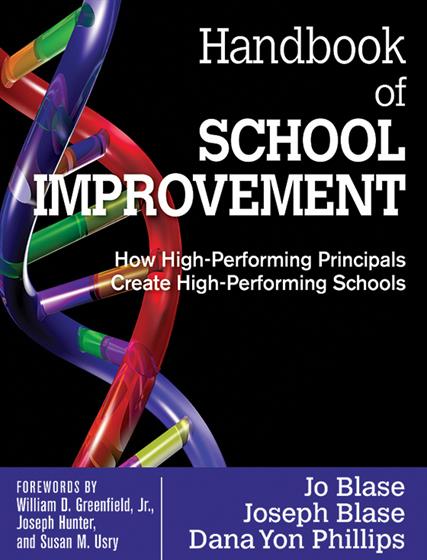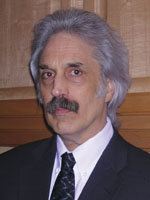Acknowledgements
About the Authors
Preface
The Book in Brief
Foreword by William Greenfield
Foreword by Joseph Hunter
Foreword by Susan Usry
List of Figures
Part I. Administrative Leadership for School Improvement: Action Foci of High-Performing Principals
Introduction to Part One of the Handbook
What Is a High-Performing School?
What Is a High-Performing Principal?
The New Challenge of Leadership for School Improvement
1. Learning: Principals of High-Performing Schools Are Models of Learning
How Did They Learn?
What Did They Learn? High-Performing Principals Learned
Summary
Tips and Suggestions
2. Modeling: Principals of High-Performing Schools Are Exemplars of the Field’s Standards of Leadership
Activities for Becoming an Exemplar of Leadership Standards
Summary
Tips and Suggestions
3. Focusing: Principals of High-Performing Schools Focus on School and Teacher Practices Associated With Increased Student Achievement
Jigsaw Activity for School- and Teacher-Level Practices Influencing Student Achievement
Summary
Tips and Suggestions
4. Leading for Achievement: Principals of High-Performing Schools Lead in Ways That Have Maximum Impact on Student Achievement
Summary
Tips and Suggestions
5. Improving Instruction: Principals of High-Performing Schools Work With Teachers on the School Mission: They Engage in On-Going, Collaborative Study of School-Wide Instructional Improvement Efforts
Summary
Tips and Suggestions
6. Developing Systems: Principals of High-Performing Schools Use a “Systems development” Approach to Dispatch With Managerial Responsibilities and to Support Instructional Aspects of Work
Use a Systems Development Approach to Create Self-Sustaining Structures
Use Time Wisely
Plan Well
Manage the Budget Efficiently and Effectively
Manage the Physical Plant Efficiently and Effectively
Prevent Problems from Begetting Problems
Summary
Tips and Suggestions
7. Empowering: Principals of High-Performing Schools Take an Empowering (Team) Approach to Almost Everything and Create “Learning Communities” in Their School
The Leadership Team
Summary
Tips and Suggestions
8. Hiring: Principals of High-Performing Schools Hire Strong People for Administrative, Faculty, and Staff Positions
Know Who You Need
Involve Everyone in Hiring
Establish Hiring Protocols
Correct Hiring Mistakes
Summary
Tips and Suggestions
9. Using Data: Principals of High-Performing Schools Insist on Using Data to Inform Instructional Decisions
Questions About Data Use in Your School
Additional Helpful Materials About Data Use
Summary
Tips and Suggestions
Suggested Reading for Further Learning: Administrative Leadership
Part II. Instructional Leadership for School Improvement: Goals of High-Performing Principals
Introduction to Part Two
10. Teaching and Learning: To Maintain a Focus on Teaching and Learning
Summary
Tips and Suggestions
Culture: To Develop a School-wide Culture That Supports and Sustains Instruction
Summary
Tips and Suggestions
12. Dialogue: To Establish a Context for Dialogue About Instruction
Faculty Meetings: A Sea Change
Encouraging Frequent Teacher Dialogue about Collaboration
A Note About the Need for Common Planning Time Among Teachers
Summary
Tips and Suggestions
13. Research: To Reference Research-Based Instructional Elements When Observing Instruction and When Talking With Teachers
Element #1: Factors Influencing Achievement
Element #2: Planning for Instruction
Element #3: Standards-Based Instructional Units
Element #4: Components of Instruction
Element #5: Student Abilities That Teaching Strategies Should Enhance
Element #6: Effective Teaching Practices Across Content Areas
Element #7: Ordering and Pacing of Content and Instructional Strategies
Element #8: Addressing Diverse Students’ Needs
Element #9: Use of Technology in Instruction
Element #10: Models of Teaching
Element #11: Classroom Management (Discipline)
Considering the Value of Walk-Throughs
Considering Formal Evaluations
Summary
Tips and Suggestions
14. Development: To Provide Effective, On-Going Professional Learning, a.k.a., Staff Development
A Professional Learning Community
The Right Approach
Going Further
A Multitude of Learning Opportunities
A Good Use of Money
The National Staff Development Council Standards
The Special Case of Empowering and Developing Special Education Teachers
Professional Learning for Administrative Teams
Summary
Tips and Suggestions
Suggested Reading for Further Learning: Instructional Leadership
Part III. Conclusion: Systems Thinking and the Systems Development Approach in Educational Leadership
Introduction to Part Three
15. The Importance of Systems Thinking and the “Systems Development” Approach for School Improvement
Using the 4C’s Model as a Diagnostic and Prescriptive Tool
Summary
16. Afterword: A Summary and A Note About Preparation for Educational Leadership
References
Research Method and Procedures
Index





